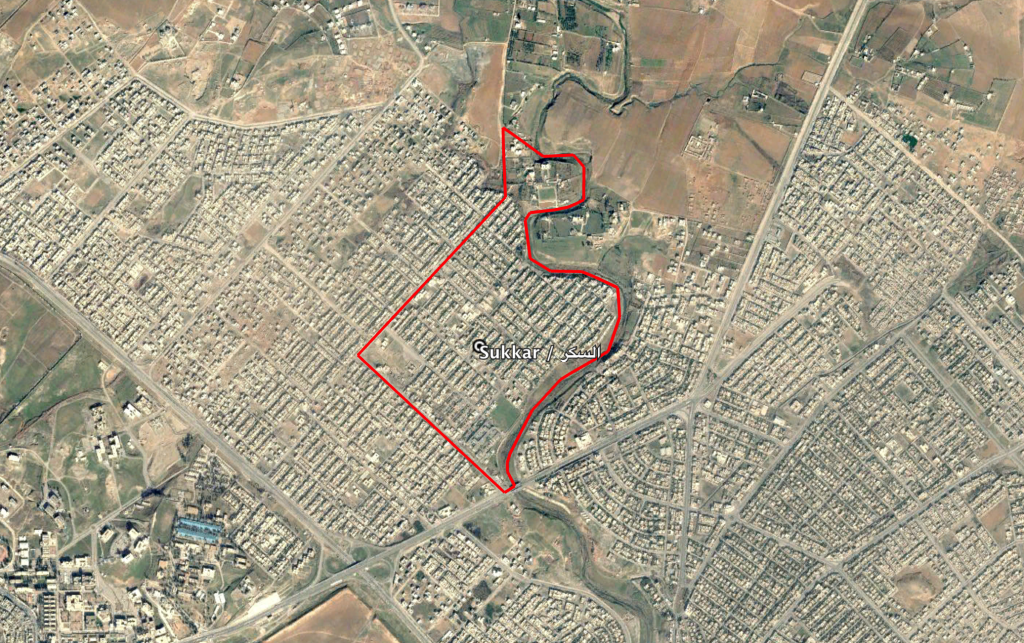Incident Code
Incident Date
Location
Geolocation
Geolocation
Airwars Assessment
(Previous Incident Code: I309b)
According to local sources, up to 17 people were killed as a result of airstrikes on their homes in the Sukkar (Sugar) district, Mosul. The bodies were pulled from the rubble on January 8th, 2017.
Airwars contacted the Canadian-based elder brother of the family, who provided 11 names, photos and ages of eleven victims. All of them were killed at 1.30pm in an airstrike on December 13th 2016.
Airwars later carried a detailed description of the event: Salam al Sultan, a Moslawi who now lives in Canada, told Airwars how eleven members of his family were killed in the early afternoon of December 13th by one such incident in east Mosul – after airstrikes tried to take out an ISIL sniper a few houses down. Their bodies could only be recovered from the rubble a month later.
Salam’s uncle, Ahmed Nather Mahmood, lived with his wife and two sons, Sehab and Amear and their families in al Sukur, a Mosul neighbourhood which has recently seen heavy fighting.
Sometime around 1 pm, a neighbour who had planned to flee the fighting arrived to see if the Mahmood family would leave with him. Fearful of the violence around them, Salam’s family had already packed to escape but told the neighbour to linger just a bit longer. He came to them and said let us leave. They said let us finish our lunch, and we will leave together, said Salam, speaking to Airwars by phone from Canada. The neighbour said no I’m leaving.
Minutes later, an airstrike obliterated the home. Salam, who had already lost one brother to an ISIS execution in 2015 and another to unknown assailants during violence in Mosul in 2008, now lost eleven more members of his family. They were going to leave… Hanan said even my luggage was ready; my bag was ready, he said, referring to a female cousin who survived the attack, but whose whereabouts are now unclear. They were just going to finish their lunch.
For a month the bodies of Salam’s uncle, aunt, his brothers and their dead children lay under the shattered remnants of their home. Only on January 14th were other family members and neighbours able to start retrieving their corpses. The stench was overpowering. Salam says his family was fearful of airstrikes but considered them more accurate prior to the operation to retake the city, and especially of late. The Iraqi government, he said, was behind schedule – and now moved quickly with massive firepower.
Only after the attack did those who survived to learn why the area may have been targeted: an ISIS sniper had apparently been spotted on a roof two houses down. If there is a sniper how come they don’t use a small machine gun from a plane, how come they have to use a big rocket to destroy three or four houses?
Hind Amir Ahmad, also a relative of the family, spoke with Amnesty International, who said the Coalition carried out the airstrike. She lost eleven relatives in the raids, including her parents, grandparents and four young siblings in the raids, said Amnesty International in a report. Hind had told Amnesty International that: “We were sleeping when the house literally collapsed on us. It was a miracle none of us was killed. We ran to my uncle’s house nearby. At about 2 pm that house too was bombed and collapsed on us… almost everyone in the house was killed – 11 people. My cousin, two aunts and I were the only ones who survived. Everyone else died. It took us six days to find only pieces of their bodies, which we buried in a mass grave in a field nearby… I don’t know why we were bombed. All I know is that I have lost everyone who was dearest to me.
The Coalition has requested additional details relating to this event.
Victims
Family members (11)







Key Information
Geolocation Notes
Reports of the incident mention the neighbourhood of Sukkar (السكر) in the east of Mosul. The generic coordinates for this neighbourhood are: 36.3910949, 43.1676006. Due to limited satellite imagery and information available to Airwars, we were unable to verify the location further.

The neighbourhood of Sukkar (السكر) in the east of Mosul
Imagery: © 2019 Google
